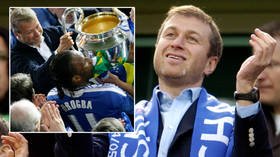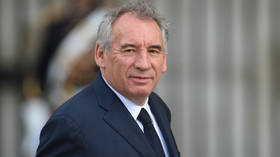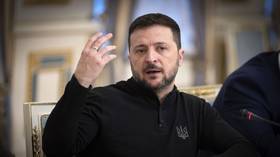Roman history: Twelve of the biggest hits and misses from the Abramovich era as the Russian owner celebrates 1,000 Chelsea games

Roman Abramovich's 1,000th game as Chelsea owner ended in a draw against a Spurs side led by one of the key figures in his reign. As well as employing Jose Mourinho twice, here are ten more hits and misses for the man at the helm.
In a country where even the most well-intentioned takeovers are prone to ending in acrimony, the reaction to the news that the then-little known Roman Abramovich was keen to take over Chelsea in 2003 was perhaps unsurprising.
Tony Banks, a former government sports minister and a Blues fan of 50 years, was the most outspoken skeptic of the incoming billionaire, publicly asking how he had attained such vast wealth in Russia, whether he was a fit and proper person to run a footballer and, in a reflection of the question most common among fans, who exactly Roman Abramovich was.
"He doesn't yet have full information about Mr Abramovich," said a spokesman for the businessman who was about to transform English football, explaining that Abramovich had done "amazing things" while predicting that the new owner would be welcomed at Stamford Bridge.
Roman Abramovich on buying Chelsea🗣: “It’s not about making money. I have much less risky ways of making money. It’s about having fun and that means success & trophies.”Chelsea can go top of the league if they beat Spurs today. We owe it to Roman on his 1000th game 🙌🏼🏆#CFCpic.twitter.com/sSSK96WWcq
— ChelseaFCBlogs (@ChelseaFCBlogs_) November 29, 2020
Since Roman Abramovich became Chelsea owner, we have won the most major trophies of any English club:Chelsea - 16Man Utd - 14Man City - 11Liverpool - 7Arsenal - 6Tottenham - 1#Abramovich1000. pic.twitter.com/P09NaKd5ZN
— LDN (@LDNFootbalI) November 29, 2020
By the start of the following season, after a spate of high-profile signings had followed, the "Roman Empire" signs could already be seen in the stands. It hasn't all been plain sailing during the dramatic 17 years that have followed, though.
Hit: Summoning "The Special One" first time around
Likeable Italian Claudio Ranieri survived a season of speculation at the start of the Abramovich era, coaching several players who were instrumental in the club's subsequent success including long-serving captain John Terry, defenders William Gallas and Wayne Bridge and current coach Frank Lampard, as well as fellow midfield marvel Claude Makelele.
Consistently infuriating fans with his "Tinkerman" approach to tactics, Ranieri - who would earn an element of revenge when he led Leicester to a shock Premier League title in 2016 - was replaced to the surprise of no-one in 2004, although Abramovich and star negotiator Marina Granovskaia's courting of England boss Sven-Goran Eriksson made the identity of the new incumbent a relatively unfamiliar one.
Then 41 and accepting his first job in a major league, Mourinho had guided Porto to a stunning Champions League win, including an eye-catching heist at Old Trafford to knock Manchester United out of the competition.
"Again, please don't call me arrogant because what I'm saying is true. I'm European champion, so I'm not one of the bottle. I think... I'm a special one."Mourinho's first press conference as Chelsea's manager aka the birth of "The Special One". pic.twitter.com/po6gq434iK
— 🥖🥐 | Kuroko's #1 fan (@xoxomyseries) August 9, 2020
His now-infamous claim to be "The Special One" raised more eyebrows than expectations at first, but the master tactician's charismatically spiky demeanour was a modern twist on the dictatorial approach of many of the managerial greats to have graced the English game.
Abramovich's gamble on a brash, bold young coach would pay handsome dividends on and off the pitch.
Miss: Losing the 2008 Champions League final in Moscow
The most dramatic day of Abramovich's early reign arrived after a Champions League game in the early part of the 2007/08 season, when Mourinho abruptly left the club by mutual consent following his faltering side's 1-1 draw with minnows Rosenborg.
Abramovich was said to have offered his stone-faced successor, Avram Grant, his earlier role of Director of Football while he was a guest of honor at an Israel game in which the highly experienced coach was in charge.
Fans perceived the understated Grant as an almost complete opposite of Mourinho, assuming in turn that Abramovich had opted for an easier life than he might have had with the uncompromising Portuguese.
🗓 ON THIS DAY:In 2008, Manchester United beat Chelsea on penalties in a dramatic Champions League final in Moscow..I don't Manchester United fans will ever get bored of watching that John Terry slip!😅😅😅(via @ChampionsLeague)pic.twitter.com/PFbBzTsxc2
— Oddschanger (@Oddschanger) May 21, 2020
Grant was the man to take Chelsea further than they had ever gone in the Champions League before, reaching the final in Abramovich's homeland of Russia.
Against familiar opponents in Manchester United, matters seemed set for a fairytale ending until almost the last kick of the showpiece, Chelsea leading 4-3 in the penalty shootout after Lampard had replied to Cristiano Ronaldo's opener.
Dependable defender Terry and ruthless striker Nicolas Anelka then uncharacteristically misfired from the spot, leaving Abramovich with few home comforts.
#OnThisDay in 2003 Chelsea Signed duo Juan Sebastian Veron & Joe Cole for £15m & £6.6m. #CFCStart of the spending spree from Abramobich! pic.twitter.com/q14Cq9Ikpp
— HCT Views (@HCTviews) August 6, 2017
Hit: Transforming the Premier League transfer market
Many would argue that Abramovich's spending power has negatively impacted the league by increasing the disparity between the haves and the have-nots, but Chelsea's spending following his arrival was unparaleled in the game at the time, bringing with it huge excitement and some of the best players in the world.
Makelele and Argentina striker Hernan Crespo were among the club's first signings as they spent well over $100 million before the 2003/04 season, with Didier Drogba, who would become one of the Premier League's iconic strikers, heading the list the following year.
🗣José Mourinho:“In 2004, Roman Abramovich told me he had money to bring Ronaldinho to Chelsea if I wanted to... I said no. Bring me Didier Drogba.” 🔵🔵#Chelsea - Legendary! 💙💙🤩 pic.twitter.com/XWJtprGo62
— Iwuji justus J.LORD (@Iwujijustus) November 20, 2020
More seismically, Chelsea's newfound ability to accumulate an array of world-class players at will created what has often been refered to as an "arms race" among Premier League clubs, forcing Manchester United - traditionally the division's richest club - to ramp up their spending.
The Abu Dhabi-based City Football Group, whose riches have allowed Manchester City to gradually overtake Chelsea in the overall accounts of the annual spend-off, might never have been set up in 2014 without the ceaseless chain of competitiveness that Abramovich allowed Chelsea to set in motion.
During the pandemic, Chelsea have even seized upon market instability to keep investing while their rivals are reluctant, including beating Liverpool to the $60 million signature of Germany striker Timo Werner.
Miss: Squandered splurges on big-name flops
If greater spending increases anticipation, it does little to mitigate the risk of disappointment.
Inevitably, Chelsea have spent huge amounts of money on under-performing signings, the most recent of whom was Kepa, whose calamitous recent form has belied his status as the world's most expensive goalkeeper at a cost of around $92.5 million.
The ousted number one is only the latest in a long line of expensive under-achievers, including Ukraine targetman Andriy Shevchenko, who was pursued by Abramovich as one of the classiest strikers in Europe but averaged less than a goal every six games after the club broke the British transfer record to sign him in 2006.
Fernando Torres arrived as a World Cup and EURO winner with a strike rate of well over a goal every other game for Liverpool, only to score 20 times in 110 appearances, meaning Chelsea paid more than $3 million for each of his goals.
Another hugely successful Spain striker, Alvaro Morata, cost a then-club record fee of around $63 million in 2017, lasting only one full season before being loaned to former club Atletico Madrid. Chelsea could take solace in being shrewd enough to only suffer a small loss when they eventually sold him to the Spanish side.
Hit: Winning successive titles in 2005 and 2006
Having come second to Arsenal by 11 points the previous season, Chelsea finished 12 ahead of the Gunners the following year, justifying Mourinho's boastful entrance in his first full season in charge.
Lampard won player of the year, Petr Cech - who is still on the club's books as a player and a member of Lampard's coaching staff - took the goalkeeping honor and Mourinho was named Manager of the Season for delivering Chelsea's second top-flight title in their history.
Despite Abramovich's backing, few had expected them to storm the division quite as comprehensively as they did, removing some of the surprise factor when they repeated the trick the following season, recording the most successful first half to a season ever on the way to Mourinho again being named best coach.
Fans were in dreamland, their club firmly established as the dominant force in the Premier League - although Manchester United, who Abramovich and Mourinho had usurped, caught up eventually, winning the title in each of the three seasons that followed.
The period also marked the start of an incredible 86-match unbeaten home run, beginning in 2004 and running all the way to 2008.
Miss: The final months of Mourinho's return
Various major names had been linked with Chelsea as interim coach Rafael Benitez's time in charge came to a close, and Abramovich eventually turned to an outsider by reverting back to Mourinho after failing to lure Pep Guardiola.
Popular managers rarely have successful second spells at clubs, although Mourinho can hardly be considered to have shattered his standing at the club, even if his air of invincibility was broken when his long unbeaten home run as Chelsea boss came to an end at the unlikely hands of Sunderland.
The special one is BACK! "@chelseafc: Here's a shot of Jose Mourinho at his press conference this afternoon... #CFCpic.twitter.com/mwa4wxEJGx"
— Be the Change (@Iam_nqobs) June 10, 2013
A first season in which he consistently underplayed any chance of glory ended with Mourinho's side exiting the Champions League in the semi-finals and finishing only four points behind Premier League champions Manchester City.
Abramovich will not regret Mourinho's second season back in charge, during which the club breezed to the title by eight points, but a new four-year contract for the coach was the precursor to a disastrous start to the following term that was strongly rumored to have been a result of mutiny in the ranks.
Mourinho would have been afforded plenty of time had his side not been in total freefall, hitting relegation form by losing nine out of 16 games before a sacking in December that even football's most self-confident manager could have had no arguments with.
📅 On this day in 2015, Jose Mourinho was sacked by Chelsea ❌How times change 👀 pic.twitter.com/pYZsBxdUXZ
— Goal (@goal) December 17, 2019
Abramovich paid a personal visit to the training ground to urge the players to turn the situation around - just as Mourinho popped in to collect the last of his belongings.
Hit: Using a "desire for excellence" to transform facilities
Asked by the media for his highlights of Abramovich's time at the club this week, Lampard had an answer referencing the Russian's impact on the infrastructure of Chelsea.
Ever the dedicated trainer, Lampard was a happy man as Abramovich overhauled the facilities available to the players on a daily basis.
Chelsea used to hire a pavilion and sports hall, set between a motorway and airport, from a London university, but after improvements funded by the owner, they soon moved to a new complex featuring top-class fitness and medical facilities.
The training ground now covers 140 acres and the academy, which has produced hundreds of promising players for the club to use in the first team or sell on for significant profits, houses a small-scale stadium, an indoor arena, spaces for education programs and an adjacent school.
"I remember him first landing at Harlington and speaking to us," Lampard recalled when he was appointed as boss, reflecting on Abramovich's first visit to their outdated former training base.
“For me, the landscape of the club changed in an instant because of the desire for excellence. A desire for excellence in training facilities, standards on the pitch – and I don’t think the levels have dropped since then."
Miss: Ousting coach Carlo Ancelotti in 2011
In his first job since winning the Champions League twice with Milan, Ancelotti might have been a victim of his own success.
The Italian coach won the Premier League in dramatic fashion in 2010, securing victory by a point over Manchester United on the final day of the season, and lifted the FA Cup, with Drogba scoring a remarkable 37 times across the course of the campaign.
2009/10 - CHELSEA CHAMPIONSChelsea went into the final day of this season needing to beat Wigan to secure the #PL trophy. A Didier Drogba hat-trick headlined an 8-0 win and sealed the league trophy for Ancelotti, their first since 2006. Chelsea scored 103 goals that season. pic.twitter.com/spLuSs8QOa
— SuperSport 🏆 (@SuperSportTV) May 12, 2019
Chelsea failed to build on that success in Ancelotti's second year, finishing nine points behind United, although the sense of inevitability to his prompt sacking after their final match fueled rumors that there were issues behind the scenes.
The dismissal proved unwise in hindsight: Chelsea's Champions League victory the following season was at odds with one of the most uneven periods of Abramovich's reign, with Andre Villas-Boas sacked in March and a lowly sixth-placed finish that would have ruled them out of Champions League qualification had they not won the trophy.
It took the club two years to find a long-term replacement for Ancelotti: former midfield favorite Roberto Di Matteo was caretaker boss during their finest hour of the season, lasting until November, when Benitez was installed on a temporary basis to steady the ship until the end of 2012/13. By then, the 14-point gap to champions United demonstrated how far they had been from challenging for another title.
Hit: Winning the Champions League for the first time in 2012
The night when Chelsea finally earned the most coveted club trophy available to them was no less agonizing than that near-miss in Moscow four years earlier.
A Champions League final against Bayern Munich in the German city looked more foreboding than the meeting with United at a neutral venue had, and David Luiz and Gary Cahill started at the back because of captain Terry's sending-off in a narrow semi-final win over Barcelona.
It's eight years since THAT momentous moment when John Terry appeared in a full Chelsea kit, including boots, shin pads and sock tape, to collect the Champions League trophy in that 2012 final despite being suspended...#bbcfootball#UCL#cfc#BAYCHEpic.twitter.com/w6x9ookMk7
— Match of the Day (@BBCMOTD) August 8, 2020
The game appeared to be up when Thomas Muller put Bayern ahead seven minutes from time, only for Didier Drogba to equalize five minutes later with a leveller that took the final to penalties after no further goals in extra-time.
Chelsea then reversed the experience of going ahead before losing in the shootout in Russia, with Juan Mata missing their first spot kick and their opponents converting all of their first three.
Ivica Olic and Bastian Schweinsteiger then both missed, allowing Ashley Cole and Drogba's successful attempts to win Abramovich the most prestigious trophy of his time at the club to date.
Chelsea FC 2011-2012(Continued) It’s the 88th minute of the Champions League Final where Chelsea are trailing Bayern Munich 1-0. Mata swings in the corner then Drogba heads in the equaliser. In the shootout, Drogba steps up to score the winning penalty. pic.twitter.com/dls5Ns51zt
— Chris (@CFC_CHRIS_) March 31, 2020
"This is wonderful for the owner," said Terry, who has been mocked ever since for joining in the celebrations in full kit despite his suspension.
“He was in tears at the end, but he has put so much into achieving this.”
Miss: Failing to persuade Pep to play ball
Either side of winning the Champions League, Chelsea were widely reported to have attempted to end their managerial instability by signing a manager with a similarly singular vision to the one they had seen in Mourinho eight years earlier.
Pep Guardiola had stylishly won the competition twice with Barcelona before announcing that he would take a year's sabbatical, further demonstrating his personal steel when he rejected Abramovich's overtures after Chelsea had sacked Villas-Boas and won in Munich.
🎙Pep Guardiola has suggested he picked Manchester City over Chelsea because of the sacking culture at the London club.Chelsea owner Roman Abramovich was desperate to appoint Guardiola in west London, dreaming of a team who could play with the style his Barcelona side did. #CFCpic.twitter.com/QNXpA9N5Gz
— Williams CFC©️ (@CFCNewsReport) February 11, 2019
Worse still for his suitors, he then agreed to join their victims in the final, Bayern, at the start of the 2013/14 season, winning the Bundesliga in each of his three campaigns at the club.
Word abounded that the astute Guardiola had been deterred by Chelsea's seemingly trigger-happy count of seven permanent managers in eight years, although he had been expected to consider them again when he left Bavaria in 2016.
As it was, Guardiola joined one of their closer rivals, Manchester City, while Abramovich employed Antonio Conte, the former Italy manager who would bring the Premier League title to Stamford Bridge during Guardiola's first season in Manchester. The Spaniard then won the trophy in each of the two following seasons.
Hit: Judging the mood as the pandemic struck
As much as Abramovich's wealth meant they were well-placed to withstand the financial pitfalls provided by the pandemic, Chelsea were also at risk of receiving the greatest backlash of any club had they indulged any temptation to limit losses via the UK government.
London rivals Tottenham, who are hardly paupers, were roundly berated for initially applying to take advantage of a furlough scheme that would have paid a portion of their staffing costs, misjudging the mood at a time of heightened sensitivities towards clubs who are often accused of greed anyway.
Also on rt.com 'Roman has been phenomenal': Chelsea women's lynchpin hails Abramovich's support for club & carers during coronavirus crisisChelsea showed a little more class and public relations awareness, encouraging their well-renumerated players to back charitable initiatives rather than take paycuts and opening up parts of Stamford Bridge to support National Health Service staff.
Abramovich was named as having overseen the club's response, and Lampard spoke of his satisfaction in September as the club attempted to underline its community credentials.
"The pride I have in how it dealt with the Covid situation in the beginning," he explained.
"Thank you NHS & key workers".Something that Chelsea has appreciated and supported in an exemplary manner from DAY 1 of this pandemic. 👏🏻💙 pic.twitter.com/hbOGBD58fD
— Terry Sazio 🏴🇮🇹 (@sazio1984) June 25, 2020
"Not furloughing staff, or mentioning we would furlough staff then retracting that statement, and making the hotel at Chelsea into a hotel for NHS workers to stay in, making considerable donations to charity. I thought the club covered itself very well."
Miss: Falling out of Champions League contention
For former winners with considerable financial clout, Chelsea have fared fairly wretchedly in the Champions League since that epic first triumph in 2012.
Their Europa League win in 2013 was a consequence of a third-placed group finish that ended their defense of the trophy shockingly prematurely, and they won only one knockout match out of five on their way to being beaten 3-1 by Atletico Madrid in the semi-finals the following season.
Also on rt.com 'Do NOT let this man leave!': Wantaway Giroud comes off bench to head Chelsea into Champions League knockout stagesMatters have worsened since: Chelsea have not won a knockout match in the competition in ten attempts, stretching back to 2014 and arguably demonstrating how many teams across Europe have surpassed them since 2012, when they were on a run of reaching the quarter-finals in seven out of nine campaigns with Abramovich in charge.
They have been beaten with increasing ease on the last three occasions in which they have reached the round of 16, losing 4-1 on aggregate to Barca in 2018 and suffering an emphatic 7-1 thumping over two legs against champions Bayern last season.
Abramovich's appearance at their group-stage visit to Krasnodar this season, which was thought to have been the first Chelsea game he had attended in person for 18 months, may have demonstrated his anxiety to witness progress on the European stage.
Happily for Lampard, their 4-0 win in Russia was part of an early season revival that has looked like a corner turned, including a prolonged unbeaten run and string of clean sheets.
A positive result on Wednesday against Sevilla, with whom they are vying to win their group with two matches to play, would significantly enhance their chances of ending that long wait for a place in the final eight.
Also on rt.com ‘He‘s a man who gets things done’: Chelsea's Lampard speaks out on ‘ambitious, rich, RUTHLESS’ Abramovich and sidekick Granovskaia












